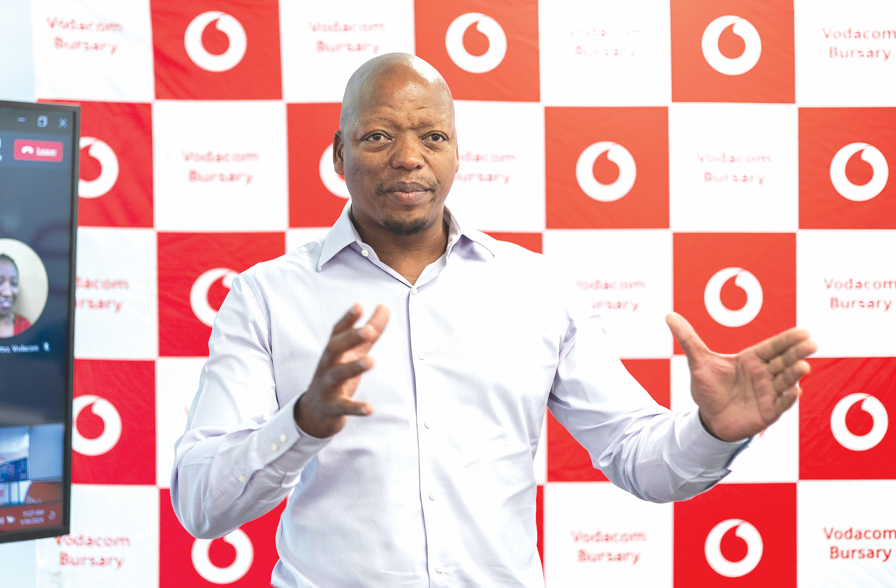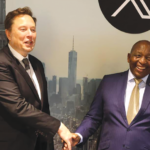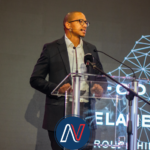- Urges local ownership for Starlink
- Raises national security concerns
Vodacom Lesotho (VCL), the country’s leading mobile network operator, has called for Starlink Lesotho (Pty) Ltd to establish local shareholding, despite the Lesotho Communications Act of 2012 not mandating it.
VCL argues that local ownership would promote economic empowerment, create jobs, and drive infrastructure development in the communications sector.
“Local involvement may foster partnerships with domestic businesses, thereby, creating investment opportunities and ensuring broader economic inclusion,” said VCL Managing Director, Mohale Ralebitso, in written comments submitted to the Lesotho Communications Authority (LCA) on March 20, this year.
“Furthermore, local shareholding would boost government revenues through taxes and dividends. As is standard practice with terrestrial providers, which are required to have local shareholding, Starlink should also have to this principle to ensure that a portion of its revenues is within the country, Ralebitso added.
Last month, LCA issued a public consultation notice informing the public that it had received an application for the Network Services Licence from Starlink Lesotho.
It said that Starlink has applied to provide satellite internet services to the public and businesses in Lesotho. The duration of the licence, if approved, will be 10 years from the date of issuance.
Acting in terms of Section 4(j) of the Communications Act, LCA then invited comments from the general public and industry stakeholders regarding the application.
Starlink is a satellite internet service operated by SpaceX, the aerospace company founded by Elon Musk. It provides high-speed, low-latency broadband internet to users around the world, particularly in remote and underserved areas where traditional internet infrastructure is limited or unavailable.
Vodacom Lesotho is itself partly locally owned. It started operating in 1996 with the government of Lesotho as a shareholder through its stake in Lesotho Telecommunications Corporation.
When the government began its privatisation process in1999, it invited bids for this share in Vodacom Lesotho. In July 2000, Sekha-Metsi Consortium, a group of local business people and public figures, was announced as the successful bidder.
Sekha-Metsi holds a 20 percent share in Vodacom Lesotho with the remaining share held by Vodacom Group which is majority-owned by Vodafone (65.1% holding), one of the world’s largest communications companies by revenue.
In its submission, VCL not only requested that Starlink establish local shareholding and a local presence but also stated that if Starlink intends to provide services directly to end-users without partnering with a local licensee, the satellite operator must obtain a unified licence and adhere to all existing obligations set by the LCA for unified licensees.
“However, it should not be mandatory for Starlink or, by extension, satellite service providers to hold a local licence in situations where satellite operators collaborate with local licensees to offer connectivity to end-users,” Ralebitso said.
He further requested that the LCA ensure Starlink is subject to the same compliance obligations as other licensees, such as licence commitments, to guarantee a level playing field.
Addressing national security and sovereignty protections, Ralebitso said that Starlink, along with satellite operators in general, should be required to establish local gateway earth stations to ensure compliance with local regulations.
“Without physical infrastructure in Lesotho, the government has limited control over these networks, which raises concerns about data sovereignty and national security,” he said.
“Additionally, the authority must ensure that satellite service licensing does not compromise national security or enable unregulated communication pathways,” he added.
Further, he posited that Starlink should not be granted access to IMT spectrum that would enable direct-to-device internet connections. He said this restriction would protect against harmful interference and address concerns about quality of service.
“Mobile spectrum should remain the exclusive domain of MNOs until otherwise determined at the ITU level (WRC-27). If WRC-27 concludes that such allocation is necessary in the future, we advocate that it must be limited to a secondary status, whereby the operation of satellite service solutions is permitted only as a supplementary option to traditional land-based IMT provided by MNOs,” he said.
VCL further suggested that satellite service providers should be utilized when terrestrial options are inadequate, such as in remote areas or during emergencies when ground infrastructure is compromised.
“For clarity, we recommend that the LCA implement conditions on its use. For example, they should provide services where there are coverage gaps so that they become complementary to the MNOs’ services, as this is the value proposition they should bring to the country to ensure universal coverage.”
It further said that satellite services should be required to collaborate with MNOs to ensure the coexistence of services offered by various categories of licensees while managing interference and quality of service concerns. To this end, VCL expressed support for the framework that the LCA has implemented for foreign satellite service providers, which mandates their partnership with local MNOs, and indicated that they believe it should be adopted for GEO satellite service providers.
“For instance, Vodacom is currently running a proof of concept (trial) for satellite transmission, having commenced with two use cases: enterprise clients and BTS backhaul, to gather important insights before commercializing the service,” VCL said.
It added: “For the trial, Vodacom has partnered with Avanti, a global satellite provider of fully integrated Multi-Orbit Connectivity Services, which offers customers dedicated fixed and flexible-beam satellite connectivity through a hybrid network and managed services that deliver seamless integration with MNO networks, providing customers with the world’s most reliable satellite connectivity.”
VCL acknowledged that LEO satellite services like Starlink have the potential to transform the broadband landscape, particularly in rural and remote areas.
“We support a framework where these services complement MNOs in addressing coverage gaps, positively impacting the sector. We believe that allowing satellite operators to provide internet services in Lesotho positions Starlink as a direct competitor to MNOs, creating an uneven playing field that, if permitted, could deter MNOs from making future investments,” Ralebitso said.
“This situation could lead to idle assets and an unfair competitive environment, discouraging mobile operators from investing in necessary infrastructure expansion and new technologies that foster innovation. Consequently, they may face inadequate returns on their investments, alongside a potential decline in licence fees, tax revenues, and job opportunities,” he added.
“To this end, we advocate for a level playing field that ensures competition is fair and balances the interests of all licence holders, including a regulatory framework that is predictable to protect and encourage investment in the sector and the country.”
Ralebitso also mentioned that VCL has been a long-standing investor in Lesotho and plans to continue further investments to expand network coverage. He said Vodacom invested over M130 million, which has contributed to projects and initiatives that have transformed the lives of Basotho.
“These initiatives fall under the health, education, emergency services, and entrepreneurship support pillars. Examples within the health pillar include M-Mama (which supports maternal and infant mortality) and the Moyo Project (focused on HIV),” he said.
He further mentioned that Vodacom made a significant financial contribution of over M18 million to support the procurement of COVID-19 vaccines for Basotho during the critical period when the virus was rampant and businesses were struggling.
“This funding was specifically allocated to assist the Lesotho government in acquiring vaccines, with a focus on phase three of the country’s vaccination rollout plan. In the education pillar, we have continued to provide internet access to 161 schools through the Schools Connectivity project, including computer labs awarded to schools as part of CSI through our subsidiary, VCL Financial Services,” he said.
Summary
- In its submission, VCL not only requested that Starlink establish local shareholding and a local presence but also stated that if Starlink intends to provide services directly to end-users without partnering with a local licensee, the satellite operator must obtain a unified licence and adhere to all existing obligations set by the LCA for unified licensees.
- “However, it should not be mandatory for Starlink or, by extension, satellite service providers to hold a local licence in situations where satellite operators collaborate with local licensees to offer connectivity to end-users,” Ralebitso said.
- If WRC-27 concludes that such allocation is necessary in the future, we advocate that it must be limited to a secondary status, whereby the operation of satellite service solutions is permitted only as a supplementary option to traditional land-based IMT provided by MNOs,” he said.

Authored by our expert team of writers and editors, with thorough research.









